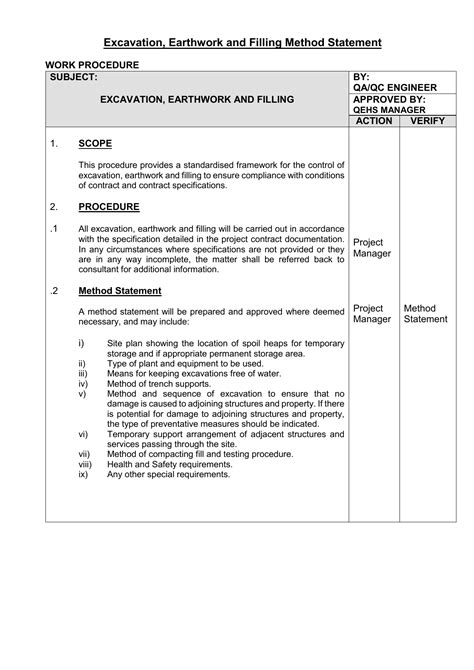over excavation and compaction Over excavation is the process of digging beyond the planned depth of the . the TB250-2 is one of Takeuchi’s most popular conventional tail swing excavators. The TB250-2 offers steel construction and lockable service access panels, an automotive styled interior, and .
0 · what is over excavation
1 · trench excavation contract details
2 · overexcavation of soil
3 · overexcavation and replacement
4 · over excavation in construction
5 · expansive soil overexcavation
The Everything Attachments Compact Tractor Post Hole Digger features a strong tubular boom and is designed for small compact tractors with a category 1 3 point hitch. The hoop, which hooks to the tractor lift arms, has pins on the outside and inside, so .
Over excavation is the process of digging beyond the planned depth of the .
Over-excavation is the removal of unsuitable soils below plan excavation level when building on native soil. Learn how over-excavation is measured, paid for, and backfilled with suitable soils or geotechnical textiles.
what is over excavation
trench excavation contract details
Over excavation is the process of digging beyond the planned depth of the foundation or trench. It’s an essential task in the construction process aimed at ensuring the stability and durability of the structure. Overexcavation is the removal of expansive soil to reduce heave under a foundation or subgrade. Replacement is the filling of the excavated area with nonexpansive or treated soil. Learn the advantages, disadvantages, and design considerations of this method.Learn about the earthwork operations and requirements for roadway construction projects in California. Find out how to prepare, inspect, and pay for excavation, backfill, embankment, compaction, and other earthwork activities.Over-excavation refers to the practice of removing more soil than is necessary from a construction site, often extending beyond the required depth and width for a foundation. This technique can be employed for various reasons, such as ensuring proper drainage, addressing unstable soil conditions, or allowing for larger footings.
Compaction must take place during a fill operation to increase the density of the soil material being placed. Another common breakdown in excavation work is bulk excavation and trench excavation. Swell and shrinkage are two important, and often misunderstood, terms. Learn about 11 soil stabilization methods, such as aggregates, geotechnical textiles, compaction, and cement. Compare their advantages and disadvantages for different engineering purposes and projects.Learn about soil types, compaction methods and techniques, and how to achieve optimal density and moisture content. Find out which sand will get really hard when compacting: well-graded sand with little or no fines.Learn how to increase subgrade support for pavement strength and performance by compaction, stabilization, over-excavation or base course. Find out how to check subgrade density, elevation and primecoat for HMA pavements.
Over-excavations involve the replacement of existing soil with "structural fill," which is defined as soil of a specific consistency that is moisture-conditioned (water is added) and compacted in layers to a specific hardness (density). Over-excavations can be effective in the right conditions. Over-excavation is the removal of unsuitable soils below plan excavation level when building on native soil. Learn how over-excavation is measured, paid for, and backfilled with suitable soils or geotechnical textiles. Over excavation is the process of digging beyond the planned depth of the foundation or trench. It’s an essential task in the construction process aimed at ensuring the stability and durability of the structure.
Overexcavation is the removal of expansive soil to reduce heave under a foundation or subgrade. Replacement is the filling of the excavated area with nonexpansive or treated soil. Learn the advantages, disadvantages, and design considerations of this method.Learn about the earthwork operations and requirements for roadway construction projects in California. Find out how to prepare, inspect, and pay for excavation, backfill, embankment, compaction, and other earthwork activities.Over-excavation refers to the practice of removing more soil than is necessary from a construction site, often extending beyond the required depth and width for a foundation. This technique can be employed for various reasons, such as ensuring proper drainage, addressing unstable soil conditions, or allowing for larger footings.
Compaction must take place during a fill operation to increase the density of the soil material being placed. Another common breakdown in excavation work is bulk excavation and trench excavation. Swell and shrinkage are two important, and often misunderstood, terms. Learn about 11 soil stabilization methods, such as aggregates, geotechnical textiles, compaction, and cement. Compare their advantages and disadvantages for different engineering purposes and projects.Learn about soil types, compaction methods and techniques, and how to achieve optimal density and moisture content. Find out which sand will get really hard when compacting: well-graded sand with little or no fines.Learn how to increase subgrade support for pavement strength and performance by compaction, stabilization, over-excavation or base course. Find out how to check subgrade density, elevation and primecoat for HMA pavements.
overexcavation of soil


overexcavation and replacement

over excavation in construction
expansive soil overexcavation
Wolverine Machinery offers a range of mini/stand on skid-steers, compact excavators and attachments for various jobs. See products, pictures, pricing and specifications of their models, such as the APL50H mini skid steer with 2,600 lb capacity.
over excavation and compaction|trench excavation contract details